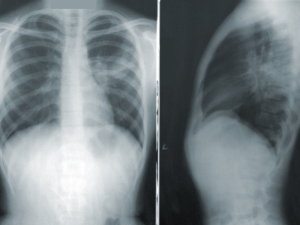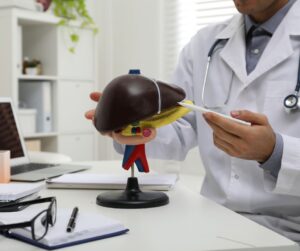The Oncology Connection
Patients and oncologists experience nonmedical switching from one trastuzumab biosimilar to another in different ways, pointing to a need for oncology providers to find more effective ways to inform and educate patients, according to a recent study in Breast Cancer Research and Treatment.
“Patients reported a variety of experiences with trastuzumab biosimilars, including being switched without notification, resulting in negative emotions,” wrote the investigators, who were led by Elizabeth Lerner Papautsky, MS, PhD, of the Department of Biomedical and Health Information Sciences, University of Illinois at Chicago.
“Some patients noticed on their own that they had been switched—in their chart or by reading insurance papers. This is evidence for a lack of consistent processes in how health care systems are managing communication with patients regarding switches to trastuzumab biosimilars, a systems-level issue. Furthermore, these experiences are inconsistent with best practices of patient-centered communication,” the investigators wrote.
Findings from the 60-item survey of patients with HER2-positive breast cancer included the following:
- Approximately 55.2% of patients who responded to this item reported being presented with an option to switch from reference trastuzumab {Herceptin®, Genentech} to a biosimilar
- More than half of the patient respondents (63.9%) reported having switched to a trastuzumab biosimilar
- 8.6% declined the switch
- About 40.8% of patients reported receiving no prior notification about switching
- 26.4% reported the treating physician or oncologist first discussed biosimilars with them, while others reported that information came from an advanced practice provider (5.7%), chemotherapy nurse (15.5%), pharmacist (2.9%), or insurer (4.0%)
Findings from the 51-item survey administered to oncologists included the following:
- Oncologists reported that the decision to switch a patient from biosimilar trastuzumab was not initiated by them (0.0%), but rather by the insurer (45.2%), pharmacy (29.0%), or hospital/center administration (19.4%)
- The most communication about the switch took place face-to-face (58.1%)
- The most common reasons for the switch included that the patient’s insurance requires a switch to a biosimilar (23.5%), it is the same treatment (14.1%), and that the substitution will save the hospital money (12.9%)
- Approximately 54.8% reported not receiving any pharmaceutical manufacturer material related to the selected biosimilar
- 20.0% shared resources through a conversation with their patient
The surveys included 13 matching items to patients about their experience with trastuzumab biosimilars and oncology providers about their perception of patients’ experiences. The top 5 items for which oncology providers responded more positively than patients were the opportunity to ask questions, adequacy of resources, effectiveness of treatment, patient worry, and magnitude of change.
About 61.0% of patients reported learning about biosimilars primarily through self-directed learning, 33.3% through a conversation with their health care provider, and 35.2% through asking on social media. Approximately 55.6% reported wanting to have time to discuss with their treating physician, achieve a better understanding of biosimilars (52.5%), and have access to printed materials (41.3%) and, specifically, materials that are user-friendly (23.1%).
For more information
Papautsky, E.L., Carlson, M., Johnson, S.M., Montague, H., Attai, D.J., Lustberg, M.B. (2022). Characterizing experiences of non-medical switching to trastuzumab biosimilars using data from internet-based surveys with US-based oncologists and breast cancer patients. Breast Cancer Research and Treatment,194, 25-33. https://doi.org/10.1007/s10549-022-06615-2







